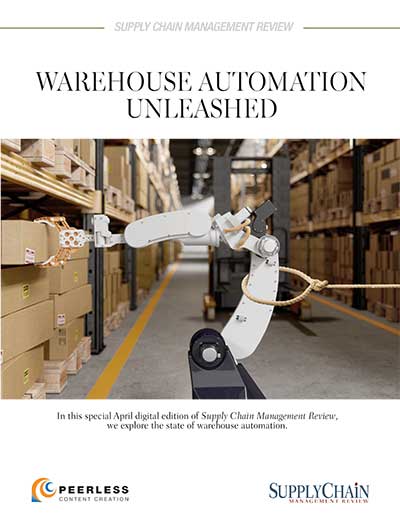Accenture is collaborating with Mastercard, Amazon Web Services (AWS), Everledger, and Mercy Corps to launch the circular supply chain capability, a blockchain-based solution designed to improve supply chain transparency by empowering consumers to directly reward sustainable practices of small-scale growers and suppliers.
With two-thirds of consumers stating a preference for sustainable brands, the ability to promote ethical and environmentally mindful practices across the supply chain has never been more important. Until now, however, Accenture maintains that consumers have had few ways to connect with small-scale suppliers at the base of the supply chain pyramid and limited opportunities to support and “incentivize” sustainable practices.
According to spokesmen, the circular supply chain capability meets this need by combining blockchain, digital identity and payments technologies to allow customers to identify individual producers who use sustainable methods and financially reward them with a “tip” made by direct payment. In addition to empowering customers and connecting them with small-scale producers, the solution enables producers, manufacturers and retailers to better manage their inventory and reduce waste; creates better transparency across the supply chain; ensures the authenticity of produce; and provides producers with more-equitable compensation for their produce by enabling consumers to reward them directly.
“Our identity capabilities are already empowering millions of users around the globe to access essential services like healthcare, banking and travel. Our circular supply chain concept combines these capabilities with blockchain and expands its application to places and things which is allowing us to rethink global supply chains,” said David Treat, a managing director and global blockchain lead at Accenture. “Through effective public and private partnerships, we can place sustainability and customer empowerment at the heart of global business models and we invite more partners to join us.”
In an interview with SCMR, Accenture added that Accenture came up with the idea over two and half years ago primarily looking at how to incentivize consumers to directly reward small-scale producers and farmers who are following sustainable practices.
Accenture executives added that each company in the agreement “brings something unique to the collaboration to help make the circular supply chain capability successful.”
Digital identity is a critical enabler of the offering. Through each producer's unique digital identifier, data about the “first mile” of their goods is established and linked to their products as they move through the supply chain. End consumers, through a simple scan of a label, can access details of the product and further, can be empowered to direct a secure “tip.”
“For the 3.4 billion people – almost half the world's population — that still struggle to meet basic needs, we believe that digital technologies are largely untapped,” said Tara Nathan, executive vice president, humanitarian & development at Mastercard.
The capability uses Hyperledger Fabric, one of the Hyperledger projects hosted by The Linux Foundation, which is a platform for building distributed ledger solutions with a modular architecture that delivers a high degree of confidentiality, flexibility, resiliency, and scalability. The blockchain-enabled capabilities of the circular supply chain capability will benefit large global enterprises, governments and non-governmental organizations by providing a new mechanism for them to track complex supply chains to small originating producers and helping them manage issues relating to accountability, waste and information transparency.
“Our blockchain-enabled work aims to facilitate more connected, transparent and sustainable supply chains, which bring about trusted collaborations among stakeholders,” said
Leanne Kemp, Everledger's founder & CEO.
SC
MR


Latest Supply Chain News
- Tech investments bring revenue increases, survey finds
- Survey reveals strategies for addressing supply chain, logistics labor shortages
- Israel, Ukraine aid package to increase pressure on aerospace and defense supply chains
- How CPG brands can deliver on supplier diversity promises
- How S&OP provides the answer to in-demand products
- More News
Latest Resources

 Explore
Explore
Business Management News
- Survey reveals strategies for addressing supply chain, logistics labor shortages
- How CPG brands can deliver on supplier diversity promises
- How S&OP provides the answer to in-demand products
- AI, virtual reality is bringing experiential learning into the modern age
- Tips for CIOs to overcome technology talent acquisition troubles
- There is still work to do to achieve supply chain stability
- More Business Management
Latest Business Management Resources

Subscribe

Supply Chain Management Review delivers the best industry content.

Editors’ Picks





